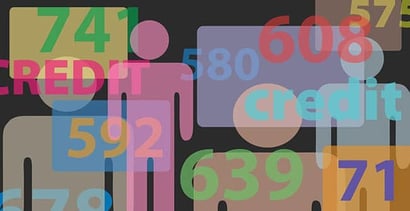

So you’ve been doing everything right for your credit score: You keep your card balances low, don’t open new accounts often and never miss your monthly payments.
However, when you check your credit score, it turns out to be quite a lot lower than you expected. What’s going on?
There are actually a few other moves that can hurt your score many people don’t think of. This could be why your score isn’t great even though you seem to be doing everything right.
1. Closing an old or unused card.
If you’ve stopped using an old credit card, it might seem like a good idea to shut it down. After all, it’s nothing but a liability. Isn’t it?
If you’ve done this in the past, it likely hurt your score. The rating agencies partially base your score on the age of your credit history. Your oldest accounts make your report look better, even if you rarely use these cards.
That’s why you shouldn’t shut down unused cards in the future. Just store them in a safe place.
2. Taking financing from a store.
As an extra sales incentive, many stores offer financing deals. This could be something like buying a sofa and not owing interest for the first six months.
This financing counts as a line of credit and shows up on your credit report. This can be a problem for a couple reasons.
First, the store will call up your credit report so the inquiry will hurt your score. In addition, they’ll likely give you only as much credit as your purchase so a nearly maxed-out loan is going to show up on your report.
“If you keep going with good credit
habits, soon you’ll have a great score.”
3. Misreporting of a no-limit credit card.
If you’re using a no-limit credit card, it could also be creating problems for your score.
Credit card companies need to report a limit on your account to the rating agencies. Some companies record your card as having a very high limit, which is good for your score.
Others report your limit as your average monthly spending. This is a problem because it shows up like you’re maxing out your account each month.
If you see this issue on your credit report, call your credit card company and ask them to stop reporting your average spending as the credit limit.
4. Give it more time.
It takes time to fix a bad credit score. If you’ve missed payments in the past, used to carry too much debt or had to declare bankruptcy, you won’t be able to fix this damage overnight.
Keep patient, though. If you keep going with good credit habits, soon you’ll have a great score.
While all these issues bring down your score a little bit, they aren’t nearly as bad as missing payments or maxing out your card limits.
If you’re doing everything right, avoid these other mistakes and your score will eventually improve.
Photo source: gawkerassests.com.
Advertiser Disclosure
BadCredit.org is a free online resource that offers valuable content and comparison services to users. To keep this resource 100% free for users, we receive advertising compensation from the financial products listed on this page. Along with key review factors, this compensation may impact how and where products appear on the page (including, for example, the order in which they appear). BadCredit.org does not include listings for all financial products.
Our Editorial Review Policy
Our site is committed to publishing independent, accurate content guided by strict editorial guidelines. Before articles and reviews are published on our site, they undergo a thorough review process performed by a team of independent editors and subject-matter experts to ensure the content’s accuracy, timeliness, and impartiality. Our editorial team is separate and independent of our site’s advertisers, and the opinions they express on our site are their own. To read more about our team members and their editorial backgrounds, please visit our site’s About page.




